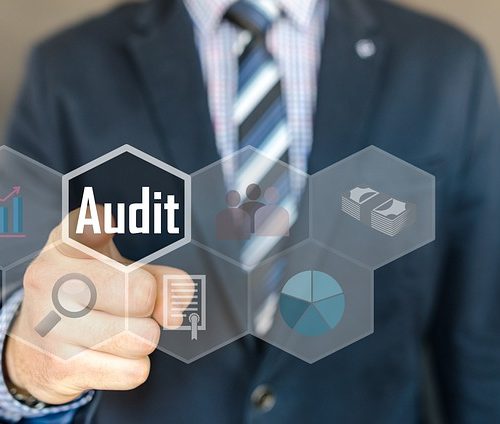When filing your personal tax return in Canada, it is essential to understand your responsibilities and obligations. It is also important to understand your deductions and credits. These depend on your particular tax situation. Some common deductions include medical and childcare expenses. In addition, you should include details about the market value of any assets you brought to Canada. If you decide to sell an asset, capital gains will be calculated based on the market value.
Form T2125
Before moving to Canada, you should learn about the different taxes you’ll be responsible for. In Canada, there are several types of taxes, including sales and land transfer taxes, liquor and gas taxes, customs duties on imported goods, and income taxes. If you don’t have a residence in Canada, you can still be subject to Canada’s income tax if you spend more than 183 days in Canada during the year.
If you are self-employed, you must keep records of all invoices and receipts relating to your business. In particular, you must keep invoices for any child care expenses you have paid for. Depending on the amount, you may be able to claim certain expenses as deductible. The CRA also provides a useful guide on how to determine deductible expenses. In addition, you need to report the income from your business.
If you recently moved to Canada, you may also need to report income from foreign assets, including US IRAs and personal US vacation properties. You may need to use specific forms, including schedule A, in order to claim your foreign income. In addition, you’ll need to report any foreign assets you own over a certain amount, and make sure to include your dependents.
The CRA also offers free income tax assistance to international students. Generally, these sessions take place near the end of the winter term. Graduate students are also eligible. An accountant can help you fill out the forms. The Graduate Student Association also offers income tax help. The GSA has accountants who can help you complete forms and answer any questions you may have.
For most Canadians, they file their T1 tax return on April 30. Self-employed individuals and people who work for themselves, the deadline for filing a personal income tax return is April 30. If you fail to file it by then, you may be penalized.
Schedule B
When filing personal Tax in Canada, the first step is to determine whether you are liable to pay tax. The tax amount you owe is based on the amount of income you earn each year. There are several types of income, and all of them must be reported. In some cases, you will need to calculate your own income.
For example, if you make a large investment, you must report your income from that investment. This can be in the form of dividends or interest. The tax rate on these types of income will depend on whether you are a resident or a non-resident. In some cases, you may not be liable to pay the tax because you made a profit in the U.S.
Lastly, you must report income from your business. The income from your business should be included on Schedule C. You should also report any royalties that you receive from a business. You can also deduct royalty income from your rental business. When filing your personal Tax in Canada, make sure to include all the income you earn from your business.
If you are a US taxpayer, you do not have to include Schedule A in your return. This is because you may have paid enough Canadian taxes to offset your U.S. taxes. However, the Trump tax changes have changed itemized deductions, so you should carefully review the new deductions. You should also use Schedule B for reporting dividends and interest received from foreign sources. Schedule B also includes questions related to FBARs and foreign trusts.
If you fail to file Schedule B, you must amend your return to disclose the information. If you don’t, you will have to pay tax, interest, and penalties.
Non-refundable tax credits
In Canada, you can claim certain types of non-refundable tax credits. These credits can reduce your federal tax bill by up to $750. However, there are some requirements that must be met. For example, you need to be a first-time home buyer to qualify for the Home Buyer’s Amount tax credit.
To be eligible for non-refundable tax credits, you must have taxable income. The amount of non-refundable tax credits that you are eligible to claim is capped at the amount of your tax liability. In contrast, refundable tax credits are returned to you at the full amount.
The non-refundable tax credits that you receive during the year can be used to reduce your personal tax bill. However, you must remember that these credits can only be used to offset taxes owed in the year they are applied. If you don’t claim the credit in a given year, it won’t be credited to you. You can find out about non-refundable tax credits on the Government of Canada website and in provincial and territorial tax credit directories. However, this research may be unnecessary if you prepare your personal tax return yourself.
Non-refundable tax credits can reduce the federal tax that you owe to the CRA. They are the best way to reduce the amount of tax you owe. However, if you don’t go to college, you don’t have anything to claim and won’t be able to take advantage of the tax benefits.
It is important to know about the different types of tax credits when filing your personal tax in Canada. While they are available to all Canadians, some of them are not eligible for all income levels. The Canadian government regularly updates their lists of tax credits, and filing your taxes early allows you to review them in detail before submitting your return. By using the correct tax credits and deductions, you can get a larger tax refund.
Late-filing penalties
If you fail to file your personal tax return by April 30, you may be charged a late-filing penalty. This penalty is 5% of the balance owed plus 1% per month until the account is paid in full. The penalty can apply to up to three years of taxes, including the current year.
Generally, you can get out of the penalty by appealing. You can also make arrangements for payment with the Canadian Revenue Agency to pay the balance owed. If you are not able to make the payment on time, the agency can demand up to 50% of the balance owed. This is the maximum penalty you could face if you are late filing your personal tax in Canada.
For example, if you sell your home and don’t report the sale, you might be penalized for that. If you don’t file your return on time, you could be charged up to $8000 in penalties. You may also need to report the sale of your home in order to claim the principal residence exemption. Failure to report this change can lead to a penalty of $100 per month or even up to $8000.
You may be able to get relief from your late-filing penalties and interest by asking the CRA to waive the penalties. To do this, you must submit Form RC4288 with a letter explaining the situation. You can find more information about your options here.
Generally, Canadian tax returns must be filed by April 30 of the following year. However, if you are self-employed, you have until June 15th. If you do not file by April 30, the Canadian tax agency will begin to apply interest on the balance owed. In addition, you may be disqualified from certain government benefits if you fail to file your return on time.
Moving expenses
When filing your personal tax in Canada, there are a number of important steps that you need to take. For starters, make sure you have all of your income and expenses accounted for. Then, you should determine whether you qualify for any credits or deductions. Some of these can include moving expenses, child care expenses, and other expenses related to your new life in Canada. Also, you should consider whether you’re eligible for RRSP contributions or union dues.
Useful Links Below
Personal Tax Services In Edmonton Alberta And Canada | BOMCAS CANADA
Personal Income Tax – Edmonton Alberta – BOMCAS CANADA
Edmonton Personal Tax | Bomcas Canada Accounting & Tax Preparation Services
Income Taxes Edmonton – BOMCAS CANADA
Personal income tax – Edmonton Alberta | BOMCAS | Income tax returns (reddeeraccountingservices.ca)
Edmonton Personal Income Tax Accountant – Canada Tax Preparation Services (bomcas.org)



























